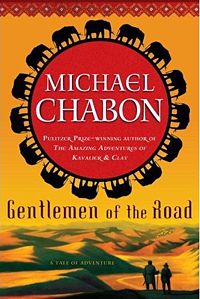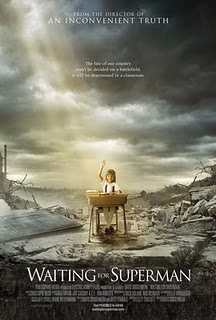Last week, the News Hour with Jim Lehrer featured
an eight-minute segment on
Bang on a Can. I urge you to
watch it because, like most items on that program, it was well produced and thoughtful enough to spark notions in my head, though I'm sure they were not the notions expected by the reporter. The segment was sparked by David Lang's recent Pulitzer prize (which I
commented on back in April) and focused not only on him, but on the
summer festival BoaC hosts every year at the Massachusetts Museum of Contemporary Art. It highlighted Lang's surprising win, the melding of musical styles that characterizes much of the music composed by the BoaC composers, and the outsider status cultivated by these composers. It hinted at the traditions that influenced the style, barely discussed Julia Wolfe and Michael Gordon, and didn't mention the legendary BoaC marathon at all.
Why bring up those omissions? Because they point to the dominant paradigm used by most people describing adventurous American music (as distinct from music inherited from Europe) - the maverick. Lang is painted as a composer working on his own who is scarcely accepted by any musical establishment and is striking out new ground unexplored by other composers.
The truth is more complex and more interesting.
Bang on a Can has been around a long time now; the first marathon was held in New York City in 1987 and is now routinely labeled "new music's biggest annual party." Its reputation is so well known and regarded that it has become the establishment all on its own, complete with
record label and
house band that tours extensively throughout the year. It has been so successful that I wouldn't be surprised to find it in the Grout textbook (the standard Music History textbook on college campuses) in the next edition or two. The fact that Lang was even considered for a Pulitzer, much less awarded one for a commission by Carnegie Hall shows that he isn't working on the fringes anymore.
Beyond that point, the notion that American composers work in isolation and obscurity needs to be revised. For the past one hundred years, these "mavericks" have encouraged one another, critiqued one another, stolen musical ideas from one another, performed one another, recorded one another, and created a thriving community. Harry Partch, who is often held up as the most iconoclastic composer of them all had regular contact with John Cage and Lou Harrison and Howard Hanson and Douglas Moore and had numerous disciples who worked with him and were inspired to then follow their own path branching off from his. Sure they were not played in orchestral halls or on operatic stages (at least not until Philip Glass and John Coolidge Adams), but that's because they were not writing for those ensembles. As you can see in the excerpt, even to today, these composers write for new groupings of instruments to find new sounds for their new music.
Now, I know Lang surely pushed the journalist to focus on the festival in order to spark more interest in and money for the project, but it was strange for me to see someone not invested in this music as I am to report on it. It served to remind me how far we have to go (and how daunting my job is in some ways) on educating the public about modern American composition.
 Here is the thousand mile stare. He's sizing you up, figuring out what you are doing there sitting in front of him, and wondering when you'll stop wiggling your eyebrows at him and just give him something to eat. Or turn on his music. Or, in general, do anything but wiggle your eyebrows.
Here is the thousand mile stare. He's sizing you up, figuring out what you are doing there sitting in front of him, and wondering when you'll stop wiggling your eyebrows at him and just give him something to eat. Or turn on his music. Or, in general, do anything but wiggle your eyebrows. Won't stop wiggling your eyebrows at him? This is the result. Joy and I are a peaceful couple and try not to solve life's problems with violence even when TV tells us we should be solving problems with violence. Our children are another story. They use violence to solve problems most people solve with words. Sam regularly pounces on us to say "come play with me!" Noah waves his fist in the air to say "I'm having a great time, keep it up!" Neither seems to realize that fists of fury usually have the opposite effect.
Won't stop wiggling your eyebrows at him? This is the result. Joy and I are a peaceful couple and try not to solve life's problems with violence even when TV tells us we should be solving problems with violence. Our children are another story. They use violence to solve problems most people solve with words. Sam regularly pounces on us to say "come play with me!" Noah waves his fist in the air to say "I'm having a great time, keep it up!" Neither seems to realize that fists of fury usually have the opposite effect. Ah, everyone's favorite face, the "I'm having gas but you think I'm smiling face." Actually, Noah's past that phase and is truly smiling at us. In fact, he's a very smiley boy, always flirting when we go out to eat or to the store. But he does do this strange tongue thing, pushing it up to the roof of his mouth when he smiles.
Ah, everyone's favorite face, the "I'm having gas but you think I'm smiling face." Actually, Noah's past that phase and is truly smiling at us. In fact, he's a very smiley boy, always flirting when we go out to eat or to the store. But he does do this strange tongue thing, pushing it up to the roof of his mouth when he smiles.













